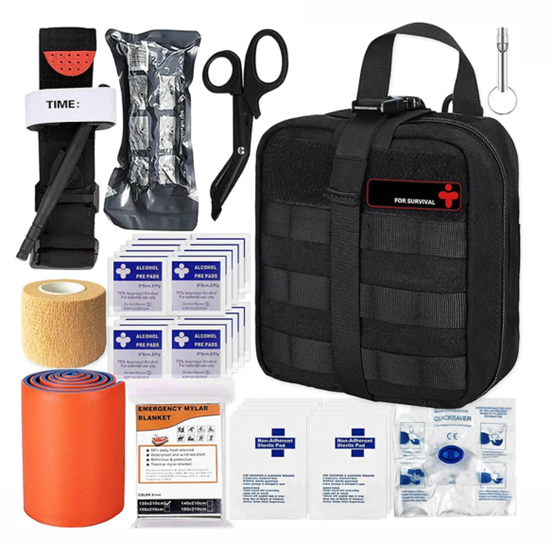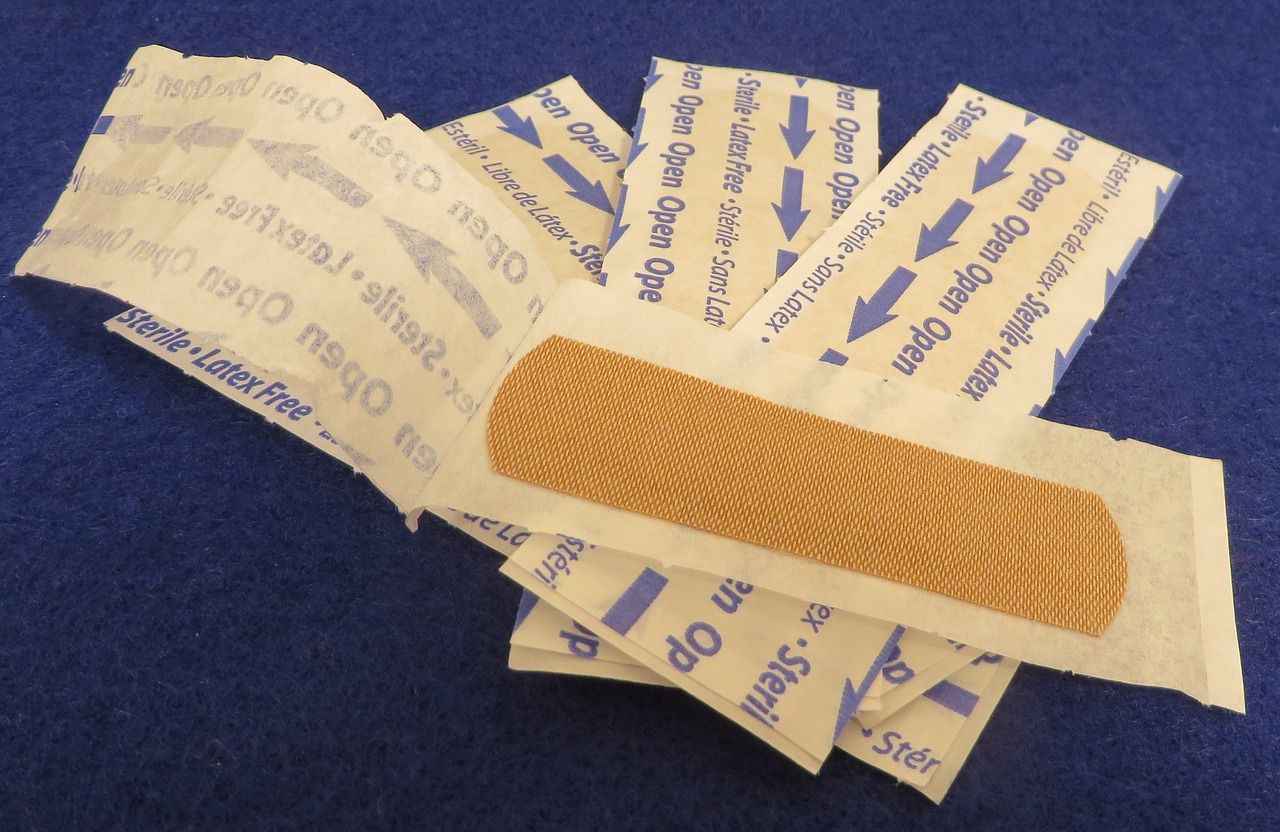
GET A QUOTE
Are First Aid Kits FSA Eligible?
First aid kits are an essential part of any emergency preparedness plan, whether at home, in the workplace, or on the go. With the growing focus on health and safety, many people are curious about the financial aspects of purchasing a first aid kit—specifically, whether first aid kits are eligible for payment through a Flexible Spending Account (FSA). In this article, we’ll dive into the details of FSA eligibility for first aid kits, and how you can make the most of your FSA funds when purchasing a first aid kit or Individual First Aid Kit (IFAK).
What is an FSA?
A Flexible Spending Account (FSA) is a tax-advantaged financial account that allows you to set aside pre-tax money for eligible medical expenses. FSAs are typically offered by employers as part of a benefits package, allowing employees to use the funds for out-of-pocket healthcare expenses like prescription medications, doctor visits, and medical supplies. FSAs can also be used for specific items related to injury and emergency care, but are all subject to specific guidelines set by the IRS.
Are First Aid Kits FSA Eligible?
The short answer is: yes, in many cases, first aid kits are FSA eligible. However, there are important nuances to consider. Generally, FSA funds can be used to purchase first aid kits and related products if they meet certain criteria. The key factor that determines eligibility is whether the kit is used to treat or prevent medical conditions, which includes basic first aid items for injuries and trauma.
FSA Eligible First Aid Kits
First aid kits that contain basic medical supplies such as bandages, antiseptics, gloves, and other common emergency items are usually FSA eligible. For example, kits that contain materials for treating cuts, burns, scrapes, or minor injuries are commonly approved by FSA administrators.
Individual First Aid Kits (IFAK) are often included in this category. These specialized kits typically contain advanced medical tools designed for more serious injuries, such as trauma shears, tourniquets, and hemostatic agents. These items are designed to stop bleeding and provide immediate care in critical situations, making them essential for military personnel, outdoor enthusiasts, or anyone who might be in a situation requiring advanced first aid.
An example of an advanced first aid kit is the Professional Grade Trauma Tactical Kit, which is specifically designed to treat trauma and stop bleeding. This kit contains high-quality components like tourniquets, trauma bandages, and gauze, making it a must-have for anyone serious about emergency preparedness.
 Risen Medical's Professional Grade Trauma Tctical Kit
Risen Medical's Professional Grade Trauma Tctical KitWhat Makes a First Aid Kit FSA Eligible?
In general, a first aid kit must contain items that are directly related to medical care and injury treatment in order to be FSA eligible. Here’s a breakdown of some common FSA-eligible items you may find in a first aid kit:
- Bandages: Adhesive bandages, gauze pads, and medical tape.
- Antiseptics: Alcohol wipes, antiseptic ointments, and disinfectant sprays.
- First Aid Tools: Tweezers, scissors, and thermometers.
- Trauma Supplies: Hemostatic dressings, tourniquets, and splints.
- Burn Care: Burn dressings and gels.
For example, many of the kits offered by Risen Medical contain high-quality materials and are suitable for FSA reimbursement. These kits range from basic first aid options to advanced trauma kits, all of which are essential for emergency care.
What’s Not FSA Eligible?
While many first aid kits are FSA eligible, not all items are automatically approved. Here’s a list of items that typically don’t qualify for FSA reimbursement:
- Non-medical items: Items like cold packs, ointments for cosmetic purposes, or personal hygiene products are generally not covered.
- Non-essential kits: Any kit that is more for convenience rather than emergency medical treatment may not qualify. For example, a travel-sized first aid kit with only basic supplies may not be eligible unless it meets the IRS guidelines.
- Recreational items: Kits designed for non-medical use, such as those for camping or outdoor recreation that do not contain necessary medical supplies, may not qualify.
It's always a good idea to verify with your FSA administrator if a specific kit or item is eligible before making a purchase.
How to Use Your FSA for First Aid Kits
If you’re planning to purchase a first aid kit or IFAK using your FSA, there are a few steps to follow:
Check the Eligibility: Verify that the first aid kit you want to purchase is FSA eligible. Most reputable retailers, such as Risen Medical, provide clear information about whether their products are eligible for FSA reimbursement.
Get the Right Documentation: To use your FSA, you may need a receipt or proof of purchase that details the items included in the kit. This documentation will help your FSA administrator process the reimbursement claim.
Submit a Claim: Once you’ve purchased your first aid kit, submit a claim to your FSA administrator. Include the necessary receipts and details of the purchase to ensure smooth reimbursement.
Use the Funds Before the Deadline: FSAs typically operate on a “use-it-or-lose-it” basis, meaning any unspent funds may expire at the end of the year. Be sure to use your FSA funds before the deadline to make the most of your benefits.
Benefits of Purchasing FSA Eligible First Aid Kits
Using FSA funds to purchase first aid kits offers several advantages:
- Tax Savings: Since FSA contributions are made with pre-tax dollars, you can save money on the purchase of your first aid kit.
- Emergency Preparedness: Having a fully stocked first aid kit can provide peace of mind, knowing you're prepared for medical emergencies.
- Cost Efficiency: Utilizing FSA funds allows you to purchase quality medical supplies without impacting your regular budget.
Conclusion
First aid kits are an important part of any safety or emergency preparedness plan, and fortunately, many of them are FSA eligible. Whether you're looking for a basic first aid kit or an advanced Individual First Aid Kit (IFAK) for trauma care, using your FSA funds can help you purchase these essential supplies without straining your budget.
To explore FSA eligible first aid kits and find the best option for your needs, visit the Risen Medical First Aid Kit Collection today. Equip yourself with top-quality, FSA-approved kits that can help you be prepared for any situation.

